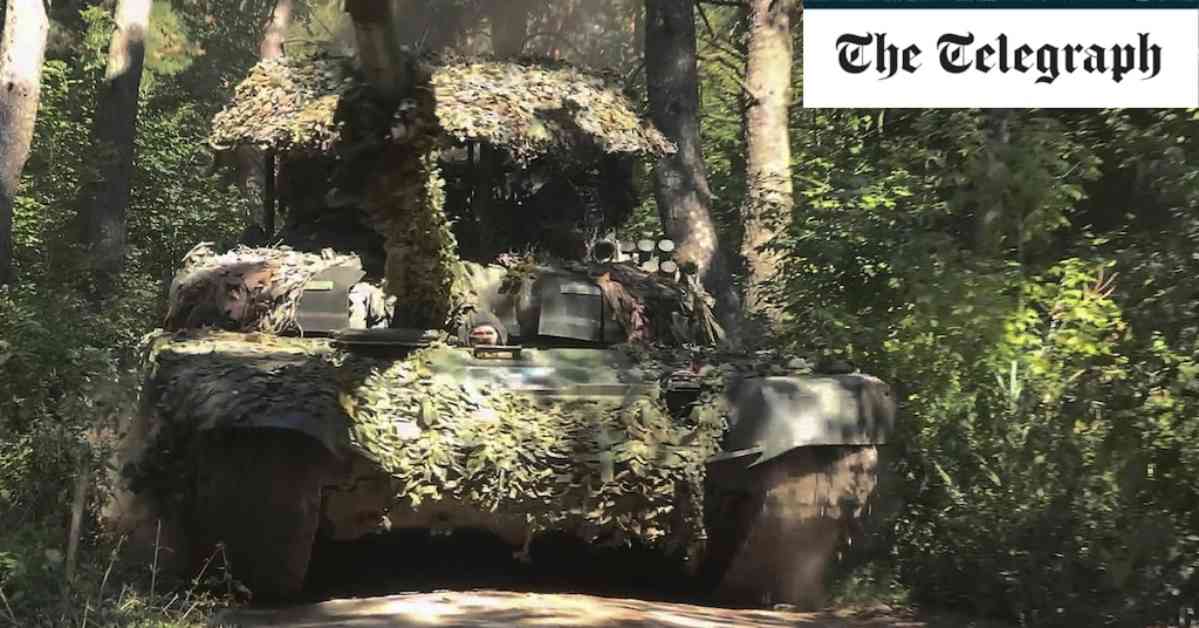The likelihood of Russia regaining seized land from Ukraine in the Kursk Region appears slim, as tensions continue to escalate in the ongoing conflict. The recent events in the region have highlighted the severity of the situation, with both sides engaging in military actions that have resulted in significant casualties and destruction.
Russian forces have been accused of launching strikes on Red Cross vehicles in eastern Ukraine, resulting in the tragic deaths of three humanitarian workers. The International Committee of the Red Cross condemned the attacks and expressed deep sorrow over the loss of their colleagues. The incident underscores the dangers faced by aid workers operating in the conflict zone.
In a separate development, Ukrainian forces claimed to have shot down a Russian jet over the Black Sea. The downing of the SU-30 fighter jet, with an estimated value of $50 million, represents a significant blow to Russian military capabilities in the region. The incident highlights the escalating nature of the conflict and the high stakes involved for both sides.
Meanwhile, in a tragic turn of events, the death of journalist David Knowles in Gibraltar has raised concerns about the safety of media personnel covering the conflict. Counter-terror police from Scotland Yard are assisting in the investigation, although no specific concerns have been identified at this time. The incident serves as a reminder of the risks faced by journalists reporting on the frontlines of the conflict.
On the diplomatic front, British Prime Minister Starmer’s visit to the US to discuss the situation in Ukraine and Gaza reflects the international community’s efforts to address the crisis. The discussions with President Biden are expected to focus on strategies to de-escalate tensions and support Ukraine in its defense against Russian aggression.
In a concerning development, Russian forces are reportedly attempting to “bisect” Ukrainian troops holding land in the Kursk region. Analysts warn that this counter-offensive could pave the way for a larger assault by better-equipped Russian forces. The Institute for the Study of War has raised alarms about the potential for further escalation in the conflict and the implications for the region.
Amidst these developments, Ukrainian President Zelensky has appealed to the US to lift restrictions on the use of long-range missiles against Russia. US Secretary of State Blinken has pledged to “adjust” strategies to defend Ukraine, signaling a willingness to adapt to the evolving situation on the ground. The international community’s response to Ukraine’s plea for support will be critical in determining the outcome of the conflict.
As the conflict intensifies, the city of Pokrovsk in Ukraine has lost access to essential services, including drinking water and natural gas, due to Russian advances in the region. The destruction of critical infrastructure has further exacerbated the humanitarian crisis in the area, posing challenges for the remaining residents and aid organizations operating in the region.
In a show of resilience, Ukrainian forces have launched fresh attacks against Russia’s counteroffensive in Kursk. The ongoing clashes underscore the determination of Ukrainian forces to defend their territory and push back against Russian aggression. The strategic significance of Kursk in the conflict highlights the complex dynamics at play in the region.
The international community continues to monitor the situation closely, with US Secretary of State Blinken visiting Poland to coordinate efforts with key allies in the region. The discussions with Polish leaders are expected to focus on enhancing logistical support for Ukraine and strengthening defense capabilities against Russian incursions.
As the conflict unfolds, the need for a diplomatic resolution becomes increasingly urgent. The rejection of a peace proposal by Brazil and China underscores the challenges in finding a peaceful resolution to the conflict. Ukrainian President Zelensky’s dismissal of the proposal reflects the deep-rooted complexities of the situation and the divergent interests of key stakeholders in the region.
In a concerning development, Russia has been urged to consider toughening its nuclear weapons policy against NATO countries perceived as supporting aggression in Ukraine. The prospect of a limited nuclear strike raises alarming questions about the potential for further escalation and the risks of a broader conflict in the region.
In conclusion, the situation in Ukraine remains volatile, with ongoing military actions and diplomatic tensions driving the conflict to new heights. The international community’s response to the crisis will be crucial in determining the outcome and ensuring the safety and security of civilians caught in the crossfire. As the conflict continues to unfold, the need for a coordinated and diplomatic solution becomes increasingly urgent to prevent further escalation and human suffering in the region.












